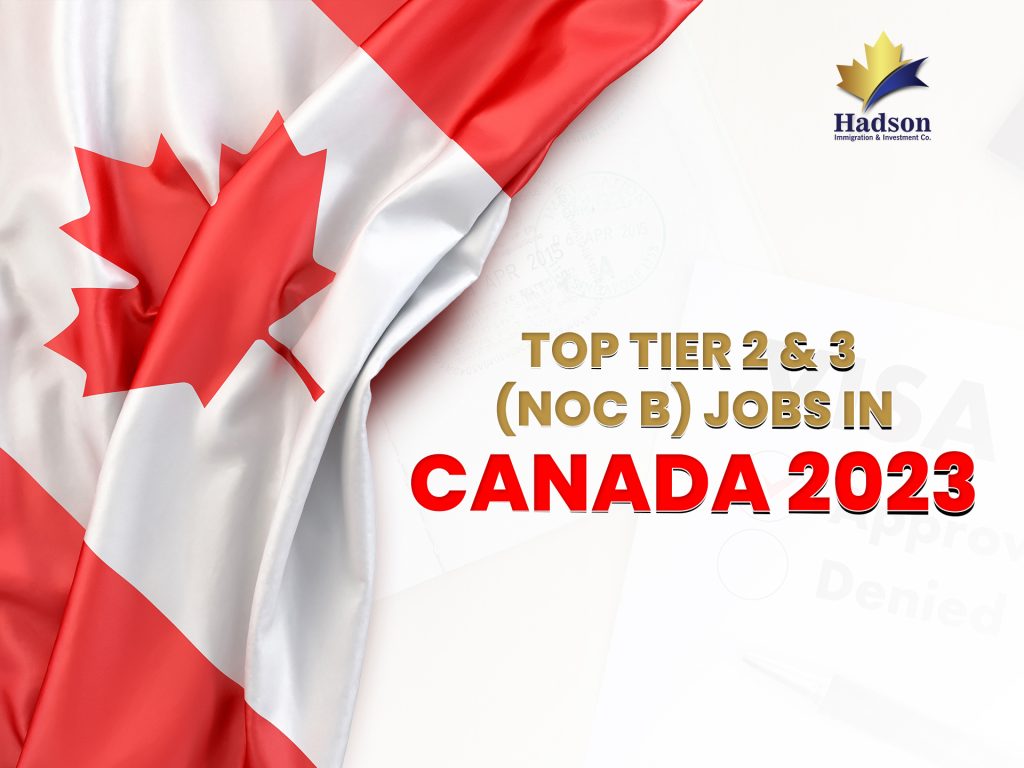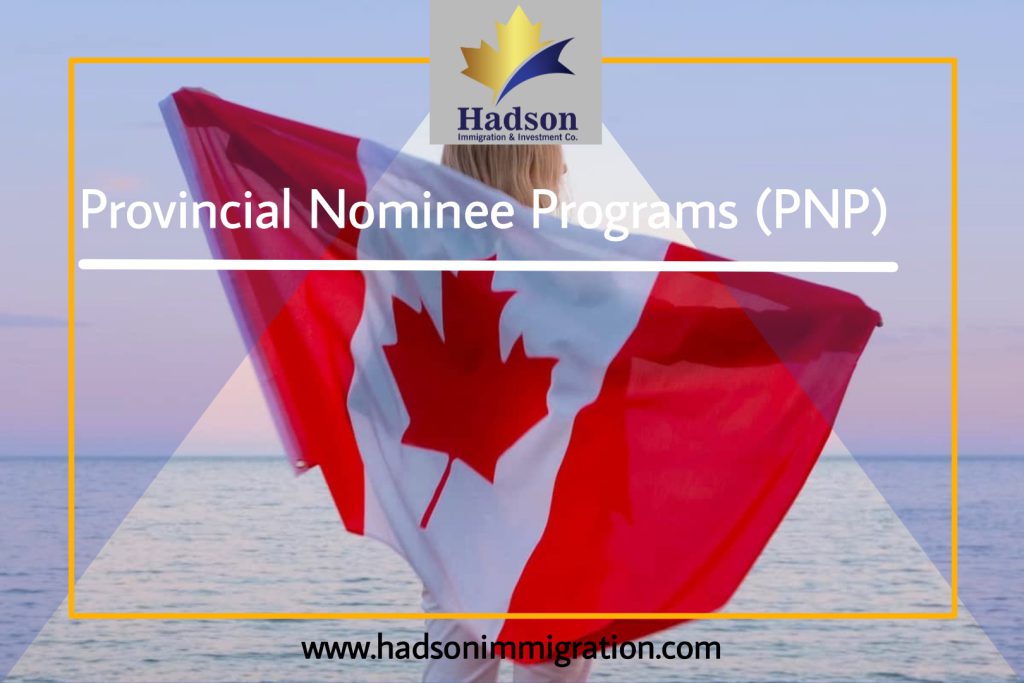Top TEER 2 and 3 (NOC B) Jobs in Canada in 2023
According to Statistics Canada, finding a job in Canada has become a lot easier.
Unemployment has dropped to 5 percent as of March 2023
Some of the top employment gains were found in sectors like:
- Accommodation and food services;
- Information, culture and recreation;
- Retail trade.
What is the National Occupational Classification (NOC)?
The NOC describes various occupations in Canada. Each occupation lists all major functions, educational requirements, and other related information.
We use the NOC 2021 system to identify and classify jobs (occupations) based on their required training, education, experience, and responsibilities (TEER).
How To Apply for NOC Jobs in TEER 2 and 3
Step 1: Find your NOC
Find your occupation’s NOC code first. This determines your Canadian immigration and employment eligibility. Job codes exist. Job codes are on the Canadian government website. Search the Canada NOC list or use the Government of Canada website’s NOC Canada search tool. You can find the NOC code and learn about the job’s skills and qualifications by entering your job title or description.
Step 2 : Determine your job’s demand.
After finding your NOC code, find out which provinces or territories demand your occupation most. Certain Canadian regions may have many skilled trades or industry jobs. Focusing on these areas will improve your job prospects. Find out what jobs are in demand in Canada by clicking on this link.
Step 3: Job Application
This may be the most important step to getting your dream Canadian job. Checking where your skills are most in demand can help you find a job and get a work visa or permanent residency.
After identifying the NOC code and determining where your job is most in demand, search job search websites, company career pages, and networking events for openings. JobBank Canada, Monster.ca, Workopolis, Indeed.ca, and LinkedIn allow you to search by occupation and province. Visit our in-demand jobs page.
To get a job in Canada, go back to those job sites, set up your profile, and register comprehensively after researching the best provinces for your occupation. Consider joining a recruitment agency to increase your chances. To get a Canadian work permit, you need a job. To succeed, tailor your resume and cover letter to the job requirements and highlight your relevant skills and experiences. If you want to write a resume that helps you secure top jobs in Canada, open this link. We will share all the secrets of writing a resume in this blog.
Step 4: Get a Canadian work permit
After receiving a job offer, apply for a Work Permit Canada. This document lets you legally work in Canada for a specific employer and occupation. Work permits in Canada are either open or employer-specific. Unless regulations prohibit it, an Open Work Permit lets you work anywhere in the country for any employer.
Employer-specific Work Permits are stricter. It restricts you to a specific job, employer, and location. You may qualify for a work permit through the Temporary Foreign Worker Program or International Experience Canada, depending on your nationality. A handy guide to applying for a Canadian work permit in 2023 read it carefully:
We are certified members of RCIC. Contact us for assistance in securing NOC level 2 or 3 jobs in Canada.
What Jobs are Considered NOC B?
NOC or Skill Level B jobs refer to jobs classified as technical or skilled trades. They typically require a college degree, specialized training, or apprenticeship. The new classification will be TEER 2.
Below are some examples of NOC B jobs:
Chefs
Plumbers
Electricians
Top 5 NOC TEER 2 & 3 Jobs in Canada
Human Resources and Recruitment Officers – NOC 12101
Average Annual Salary – $54,045
Human resource and recruitment officers are in high demand in Canada. As more and more countries look to recruit both remote and on-site workers, the need for recruitment managers has seen a vast increase in demand.
“According to JobBank Canada, the job forecast in this sector indicates promising opportunities and good prospects across multiple provinces nationwide.
Nova Scotia
New Brunswick
Saskatchewan
Recruitment officers generally need a university or college diploma in business or personnel administration, industrial relations, commerce or psychology to work in Canada. You may also need a Certified Human Resources Professional (CHRP) and some experience working in a clerical or administrative position.
Accounting Technicians and Bookkeepers – NOC 12200
Average Annual Salary – $48,526
As more people start businesses, the need for accounting technicians and bookkeepers is growing. Whether to keep records of your business accounts, file tax returns or verify financial transactions, every business will need your services.
The following provinces in Canada will have good job opportunities over the next two years:
- Newfoundland & Labrador
- Prince Edward Island
- New Brunswick
- Manitoba
- Saskatchewan
- British Columbia
- Yukon
- Nunavut
You’ll need a secondary school or college qualification to work in Canada as a bookkeeper. You may be required to obtain an accountant certification, depending on your experience and education.
Dental hygienists: NOC 32111
Average Annual Salary – $83,924
Dental hygiene is another field that has increased in demand in Canada. Whether you’re looking to work in a dentist’s office, private clinic or hospital, there are various opportunities in various provinces across Canada. These seven provinces are forecast to have good job prospects:
- Alberta
- British Columbia
- Manitoba
- Nova Scotia
- New Brunswick
- Prince Edward Island
- Saskatchewan
You’ll need a two- to three-year college diploma from an approved dental institution to work as a dental hygienist in Canada. Depending on the province you are interested in working in, dental hygienist licensing or licensure is required.
Paralegals – NOC 42200
Average Annual Salary – $52,677
Paralegals are also widely needed in Canada in 2023. As a paralegal, your main role is to assist lawyers or other legal professionals in researching and preparing legal documents. Look at these provinces looking for paralegals over the next two years:
- Alberta
- British Columbia
- Manitoba
- Nova Scotia
- Saskatchewan
You’ll need a college certification or bachelor’s degree in law and in-house training to work as a paralegal in Canada. You’ll also need a provincial license to perform advanced legal services.
Early childhood educators (NOC 42202)
Average Annual salary: $83,924
Canada places a huge emphasis on its education system. It has the most educated adult population in the world. It prides itself on its high standard of public education, which is free to all citizens and permanent residents.
As an early childhood educator, your role would be to plan lessons and educational programs for students aged four to twelve. The following six provinces will need your skills in 2023:
Alberta
British Columbia
Manitoba
Nova Scotia
Prince Edward Island
Saskatchewan
You’ll need a two- to four-year college certification or bachelor’s degree in child education or child development to teach as an early childhood educator in Canada. Experience in the field and licensing for early childhood educators may be required.
Start Working in Canada in 3 Simple Steps
Step 1: Find out Where Your Job is Needed Most
This is perhaps one of, if not the most, important step to landing your dream job in Canada. Finding out where your skills are in demand most will help make finding a job easier and help improve your chances of getting a work visa or even permanent residency.
You can search for your occupation and province on the government job listing website, JobBank Canada or various recruitment websites like Monster.ca, Workopolis, Indeed.ca, or LinkedIn.
Step 2: Choose your Immigration Program
The best part about qualifying for a NOC B job in Canada is that you could be eligible to apply directly for Permanent Residency (PR) through one of three programs under the Express Entry System.
The processing times are relatively quick, six to eight months on average and the profile will be valid for up to a year. Your profile will be entered into a draw with other applicants every two weeks. If successful, you are invited to apply for PR!
Another option to look at, which is great if you have a job offer in Canada, is to apply directly to the province where your job is located. Some Provincial Nominee Programs (PNPs) have very fast processing times: the British Columbia PNP (BC PNP) has processing times of around two to three months, for example.
With over 100 immigration programs available, choosing the best one for you can be tricky.
Step 3: Start the Application Process
Now that you know where your job is in demand and which programs you qualify for, it’s time to start the visa application process. Once you get your eligibility assessment results from your chosen immigration consultancy, you can confidently proceed and complete your application forms.
FAQ:
Can I get PR with an NOC B Job?
Yes, you can get PR with an NOC B job. NOC B jobs are considered highly skilled in Canada. They will allow you to apply for PR status through programs like the Federal Skilled Worker Program (FSWP), or the Canadian Experience Class (CEC), provided you meet the requirements.
You could also apply through the Provincial Nominee Program or the Atlantic Immigration Program.
Does your NOC affect your CRS score?
No,
your NOC code doesn’t affect your Comprehensive Ranking System (CRS) score. It only indicates which Express Entry program you’ll be eligible for. It also helps determine whether or not your skills match certain job requirements that are equivalent to Canadian standards. If you would like to determine your CRS score, you can do so with our CRS calculator.
Which Express Entry program is best for someone with a NOC B job?
If you’re applying from outside Canada, the Federal Skilled Trades Program (FSTP) is the best Express Entry program for you.
What are the top 5 TEER 2 and 3 (NOC B) jobs in Canada in 2023?
The top 5 TEER 2 and 3 (NOC B) jobs in Canada in 2023 are:
- Registered nurse (NOC 3012)
- Electrician (NOC 7241)
- Plumber (NOC 7242)
- Construction electrician (NOC 7241)
- Automotive service technician (NOC 7321)
What are the salaries for these jobs?
The salaries for TEER 2 and 3 jobs will vary depending on the specific occupation, location, and experience of the individual. However, most jobs offer good salaries and benefits.
According to the Government of Canada, the median annual salary for registered nurses in Canada is $77,400. The median annual salary for electricians in Canada is $67,700. The median annual salary for plumbers in Canada is $64,000.
What are the requirements for these jobs?
The specific requirements for TEER 2 and 3 jobs will vary depending on the specific occupation. However, most jobs require a combination of education, training, and experience.
Some jobs may also require additional qualifications, such as a provincial or territorial license or certification.
The first step towards moving to Canada is to get an assessment of your specific situation. Call us today at +1 604 358-5763 for an assessment to see if you are eligible to move to Canada, or fill out our online assessment form.









